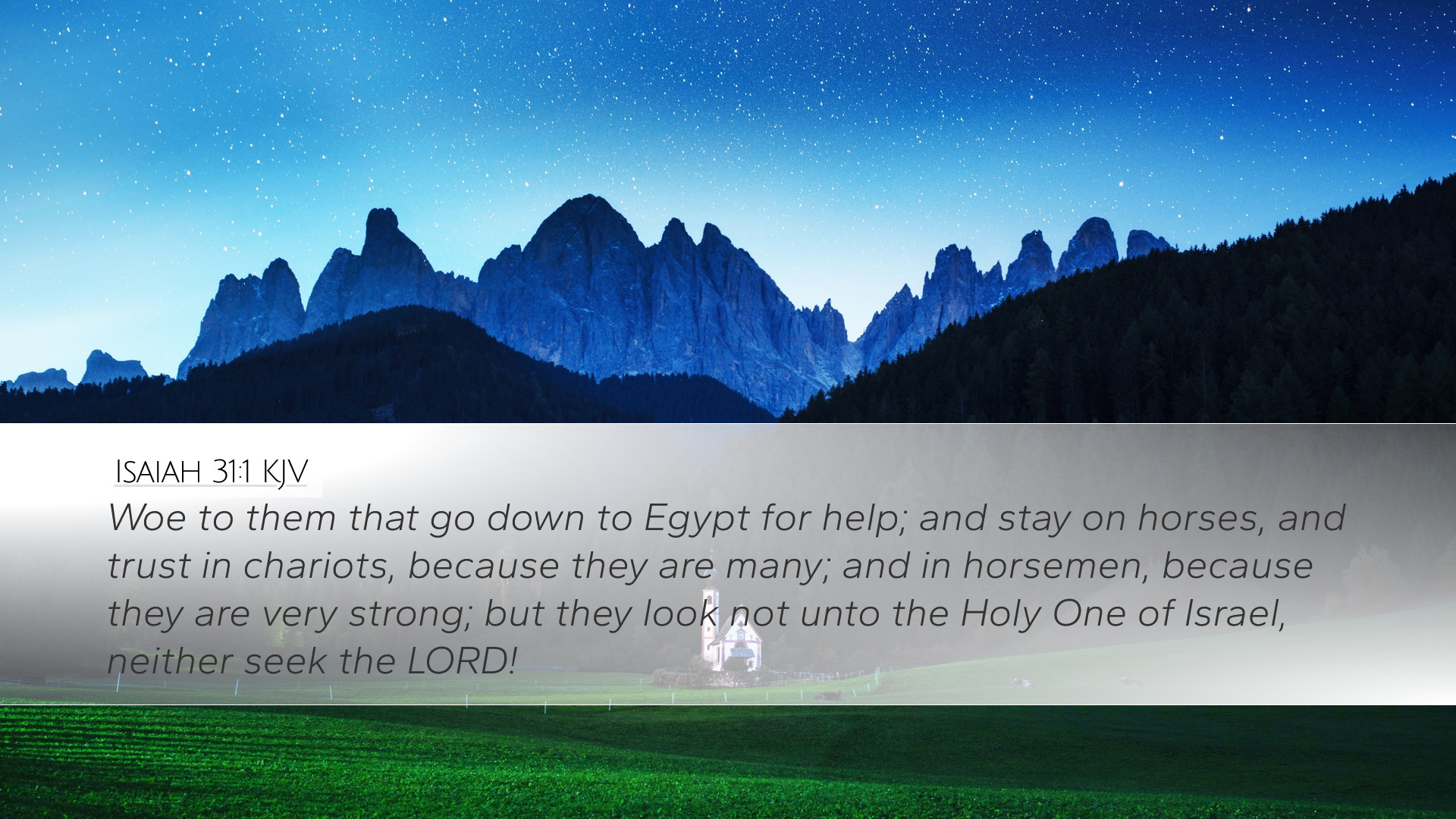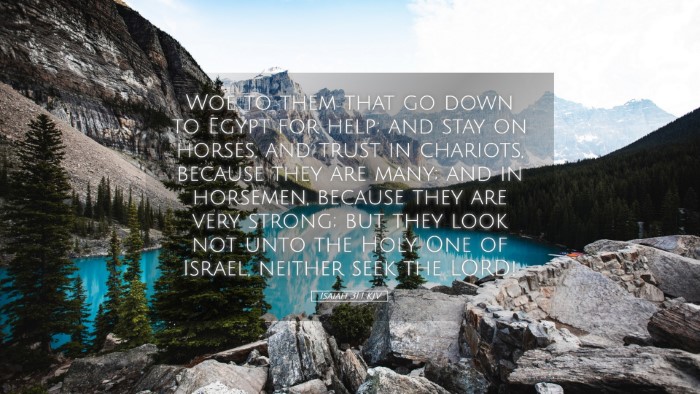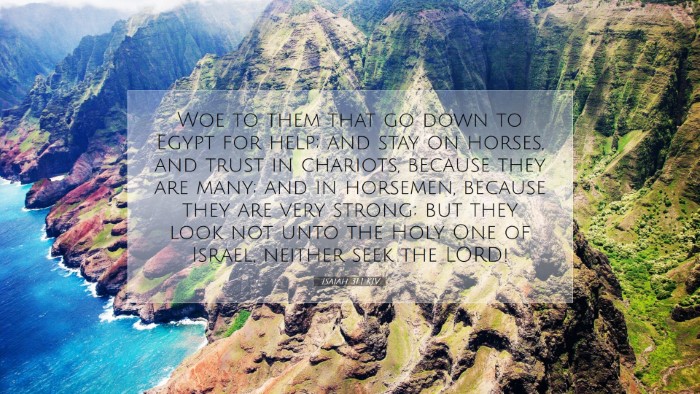Commentary on Isaiah 31:1
Verse: "Woe to those who go down to Egypt for help and rely on horses; who trust in chariots because they are many, and in horsemen because they are very strong, but do not look to the Holy One of Israel or consult the Lord!" (Isaiah 31:1)
Introduction
This verse serves as a direct indictment against the people of Judah for their reliance on foreign alliances and military strength rather than on God. It underscores the folly of placing trust in human resources and wisdom when God is available as the ultimate source of help and deliverance.
Contextual Background
The historical context of Isaiah's prophecy occurs during a time of military threat from Assyria. The Kingdom of Judah, under King Hezekiah, faced an existential crisis and, in their desperation, looked to Egypt for assistance. This appeal to Egypt's military power is met with prophetic condemnation.
Matthew Henry emphasizes that "the people of God are often tempted to seek help from the world in times of trouble." This reflects a lack of faith and reliance on transient solutions rather than eternal truths
Exegesis of the Text
Isaiah's "woe" signifies a warning and judgment against those who turn away from God. The term "go down to Egypt" is symbolic of the reliance on human wisdom and military might. The connotations of "horses" and "chariots" signify strength and capability in warfare; however, the poetically strong language highlights that these are not adequate sources of trust.
Horses and Chariots
- Symbol of Strength: Horses and chariots represented military prowess in ancient times, suggesting a move towards reliance on tangible power.
- Military Assistance: The people believed that by allying with Egypt, they could ensure their security against Assyria. However, this reliance proved to be misguided.
Adam Clarke notes that "trusting in chariots is a sign of a lack of faith in God," implying that confidence in worldly systems leads to spiritual downfall.
The Holy One of Israel
The phrase "the Holy One of Israel" emphasizes God's unique and transcendent nature. This title is used throughout Isaiah to depict God's holiness, sovereignty, and faithfulness. In this verse, the absence of consultation with God serves as a stark contrast to His readiness to assist those who seek Him.
Theological Implications
This text speaks volumes to the theology of divine providence and human responsibility. It reflects the tension between faith and fear faced by God's people when under duress. The reliance on Egypt illustrates broader themes of idolatry, where anything or anyone that takes precedence over God becomes an object of trust.
Faith Versus Fear
- Trust in God: This passage calls the faithful to remember that ultimate strength lies not in numbers or military might, but in the character and commitment of God.
- Divine Aid: God's willingness to intervene is profound. He is portrayed as a protector who desires to be their source of strength.
Application for Today
Isaiah 31:1 holds critical lessons for contemporary believers. Many in today’s society lean heavily on human resources—wealth, power, political connections—rather than seeking divine intervention. Pastorally, this text urges congregants to evaluate their sources of trust during challenging times.
Points for Reflection:
- Where do we place our trust? Are we looking to worldly solutions before consulting God?
- How do we respond to crises? Do we first seek assistance from others or turn to our faith?
- What does reliance on God look like in our day-to-day life?
Albert Barnes emphasizes that "the believer who rests in God has an unfailing resource," reminding us that true security comes from recognizing God's sovereignty over all affairs.
Conclusion
Isaiah 31:1 serves both as a warning and as encouragement. While it cautions against misplaced trust in earthly means, it simultaneously invites believers into a deeper reliance on God, the Holy One of Israel. As such, this verse transcends its time, speaking relevantly into the ever-changing landscape of human circumstances and divine assurance.


